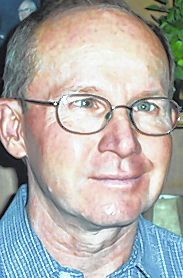The smile wasn’t there anymore. Cam Newton wasn’t happy. His team, the Carolina Panthers, had just lost the Super Bowl to the Denver Broncos. The Panthers lost, 24 to 10, with the Panther offense, led by Cam at quarterback, outclassed by the ferocious Denver defense.
It had been a great season for the Carolina Panthers. The team had lost only one game during the regular season, and had breezed through the playoffs. Cam Newton had been the face of the Panthers, laughing and celebrating (many thought over celebrating) every touchdown and big play.
Now Cam was sitting in the press room following the Super Bowl defeat. The smile was gone, replaced by a grumpy sneer. Short answers were given to the press, some even indirectly critical of his own teammates for their play. He answered questions for only the required time and quickly left.
The media quickly began to sharply criticize Cam Newton’s behavior. They said it was not the proper way for a leader of a team to act in defeat. This was especially true considering how Cam had acted while the Panthers were winning. They called his action characteristic of a sore loser, not a leader. A couple of days later, Cam responded to the media’s criticism. His response is telling.
“I don’t have to conform to what anyone wants. I am my own person,” he stated. Cam added, “Like I say, before you assume anything, what makes your way right?”
“What makes your way right?” Cam Newton told the reporters that he determines what is right or wrong for him. As one commentator stated about Cam, “He’s telling you his truth.” Are Cam Newton’s statements just an opinion of a highly paid professional athlete who has been told since childhood that he can do no wrong? Or are they just a reflection of the attitudes and beliefs of society, as a whole? And that goes way beyond the discussion of how to respond after a loss in a football game.
What is truth? What is right and wrong? That’s hard to answer these days. In years past, there was a general idea of truth, right and wrong. It was called absolutism, the view that generally held truths and values apply at all times, and in all situations. In my lifetime, belief in that view has changed dramatically. The change started in higher education, advanced in art and entertainment, and slowly became a large part of our general culture.
The change is called relativism. Relativism is defined by Webster’s dictionary as “the belief that different things are true, right, etc., for different people or at different times.” Vocabulary.com defines relativism as “the belief that there’s no absolute truth, only the truths that a particular individual or culture happen to believe.” We see relativism all round us. It’s become such a part of our culture that we’re not even aware of it. We hear (or may have even said):
“I have to determine what’s right for me.” “That’s your truth, not mine.” “Who are you to say what’s right or wrong?”
But there has been another change. Because the truth and the right for me of relativism has changed into the truth and the right for me that works best for me. And since everyone has their own idea of truth, right and wrong, it really doesn’t matter. What matters is what works for me. That view is called pragmatism.
Pragmatism is defined by Webster as “a reasonable and logical way of doing things or of thinking about problems that is based on dealing with specific situations instead of on ideas and theories.” In other words, no standards, no ideals, just what works best for me. What worked for me today may have changed from yesterday. It may change tomorrow.
It worked being a Democrat a few years ago. It works being a Republican today. It worked being pro-abortion a few years ago. It works being pro-life today. It works for Donald Trump. Trump is a true pragmatist, but then again, most politicians are.
I started this column with Cam Newton and, somehow ended with Donald Trump. Maybe it is fitting, because it appears that they both are going to do what is right. And that right is apparently based only on what’s best for Cam and Donald.

